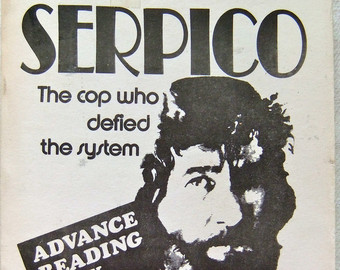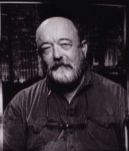FOLLOWUP 2: THE BLUE WALL OF SILENCE
Last week, I again wrote about the Blue Wall of Silence, the unwritten “commandment” in law enforcement that cops don’t rat on cops– no matter how illegal or near-illegal a police officer’s conduct may be. I pointed out that this rule is almost absolute, not only because of peer pressure, but also because, typically, whistle-blowers are not protected by police management. In fact, the law enforcement careers of police officers who are too honest– officers who refuse to play the Blue Wall game– are often destroyed.
The classic example of this truth here in Key West is the case of former police officer Tom Neary. Neary was suspended in October 2007 and finally fired in June 2008, charged with conduct unbecoming a police officer. The official list of allegations against Neary gave the term “trumped up” a whole new meaning. But make no mistake here: The real reason that Neary’s law enforcement career was destroyed is that he threatened to go public with information about a bogus investigation ordered by then-Police Chief Bill Mauldin with the objective of ending the political career of City Commissioner Mark Rossi.
You see, back in 2007, it seemed apparent that longtime City Manager Julio Avael was finally going to lose his job– and Mauldin wanted that job. But when he attempted to lobby Commissioner Rossi, Rossi told him, “I don’t think you are qualified to be police chief, much less city manager!” I know that is what Rossi said because he later told me about that conversation. Well, that did not only go over very well with Mauldin, it also didn’t sit well with certain influentials in town who would have been perfectly happy with a continuation of Avael’s Bubba-style city management. And Mauldin was Avael’s boy. During his last week on the job, before he left City Hall in disgrace, Avael slipped Mauldin a five-year extension of his contract and a $10,000 raise.
Also in 2007, Rossi just happened to be running for reelection and, as election day neared, there was a lot of chatter in the Police Department that Mauldin still had a strategy to become city manager– even though Jim Scholl, the retired commander of the Navy base here, had just been hired into the job. Reportedly, Mauldin had been told by one or more city commissioners that Scholl was just temporary. It was not known what support Mauldin may have had on the commission, but it was known that he didn’t have Rossi’s support. So, Mauldin reportedly told selected members of his special operations unit to “get something” on Rossi– like fabricating a rumor that Rossi might be selling drugs out of his nightclub. All Maudlin wanted was enough “evidence” to convince a judge to sign a search warrant to authorize a well-publicized raid. It mattered little whether or not the charges might stick. All that was important was that the raid take place before the election. It might be of interest to note here that the commander of the special ops unit at that time was then-Captain Donie Lee– who is now Key West Police Chief.
Well, needless to say, Mauldin’s bogus investigation was a major topic of conversation within the KWPD. Many rank-and-file officers were appalled at what Mauldin was doing. It wasn’t right. It wasn’t professional– and it probably wasn’t even legal. Routinely lying on police reports was one thing; falsifying evidence to try to influence a city election was something else altogether. But apparently, none of those officers were appalled enough to speak out (you know, the old Blue Wall of Silence thing)– except one. Tom Neary. He told his supervisor that he could not stay silent. And his supervisor reported his remarks to Mauldin. And in near-panic, Mauldin immediately launched a systematic campaign to discredit Neary, a campaign that would lead to Neary’s suspension and, eventually, his firing.
The information that Neary had been suspended was immediately leaked to the press, along with information that, when the department had conducted a check on Neary’s personal firearm, they got a “hit,” indicating the the gun had been stolen in Arizona 30 years earlier. That was headline news in the Key West Citizen for two days. A week or so later, a red-faced spoleswoman for the KWPD had to send out a correction. Apparently the department had (accidentally or on purpose) conducted the gun check using one of the gun’s part numbers, rather than the registration number– and Neary’s gun was “clean.” By that time, however, Neary’s reputation had been tarnished in the community. Mauldin also alleged that Neary had bragged to fellow officer that he was an undercover federal agent. Even the FBI investigated that one– and couldn’t come up with any reason to file charges. But again, by that time, Neary had been effectively discredited.
But the primary charge against Neary was that he violated departmental policy by discussing an ongoing confidential investigation– which was, of course, the Rossi investigation. But the department has yet to reveal the nature of whatever investigation it was that Neary supposedly improperly discussed with his supervisor and fellow officers– who were all discussing the same investigation.
Unfortunately for Mauldin, whatever “evidence” his special ops officers were able to come up with concerning Commissioner Rossi was not persuasive enough for any judge to sign a search warrant– and Mauldin’s planned “pre-election surprise” failed to develop. And Rossi went on to win reelection.
Also unfortunately for Mauldin, a few months later he was forced to resign amid allegations that he had repeatedly sexually harassed one of his female employees. Captain Lee was promoted to Chief Lee– and when an unhappy Commissioner Rossi asked him about the so-called Rossi investigation, Lee denied that any such investigation was ever conducted– probably adding something like, “And, anyway, how could you ever believe a disgruntled and now-discredited former officer like Tom Neary?”
Okay, then, if a Rossi investigation never existed, what investigation was Neary charged with improperly discussing?
~~~~~~~~~~~~~~~~~~~
Dennis Reeves Cooper founded Key West The Newspaper in 1994 and was editor and publisher for 18 years until he retired in 2012.

